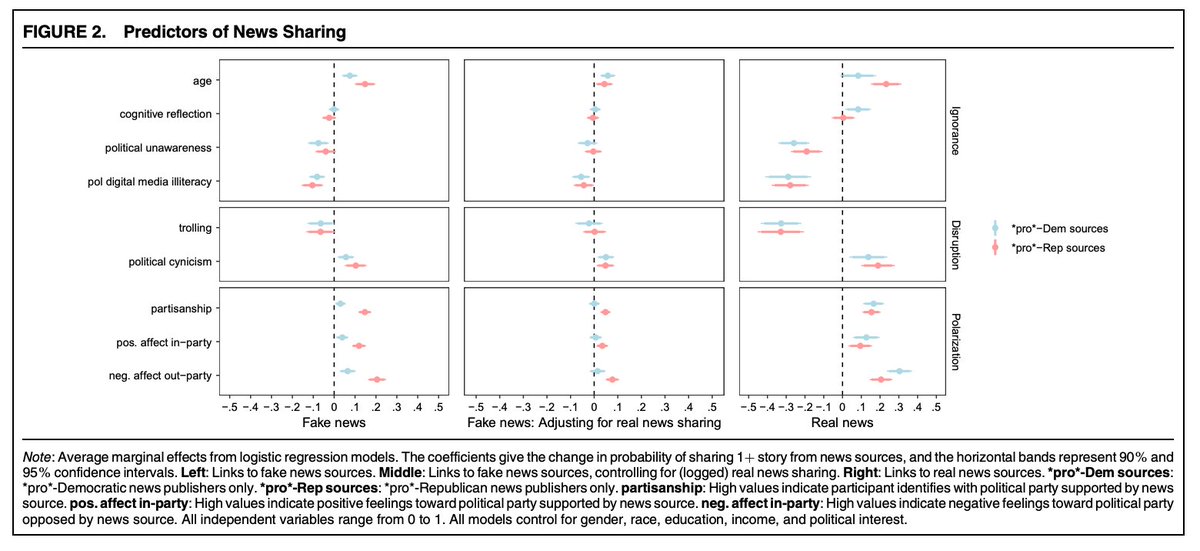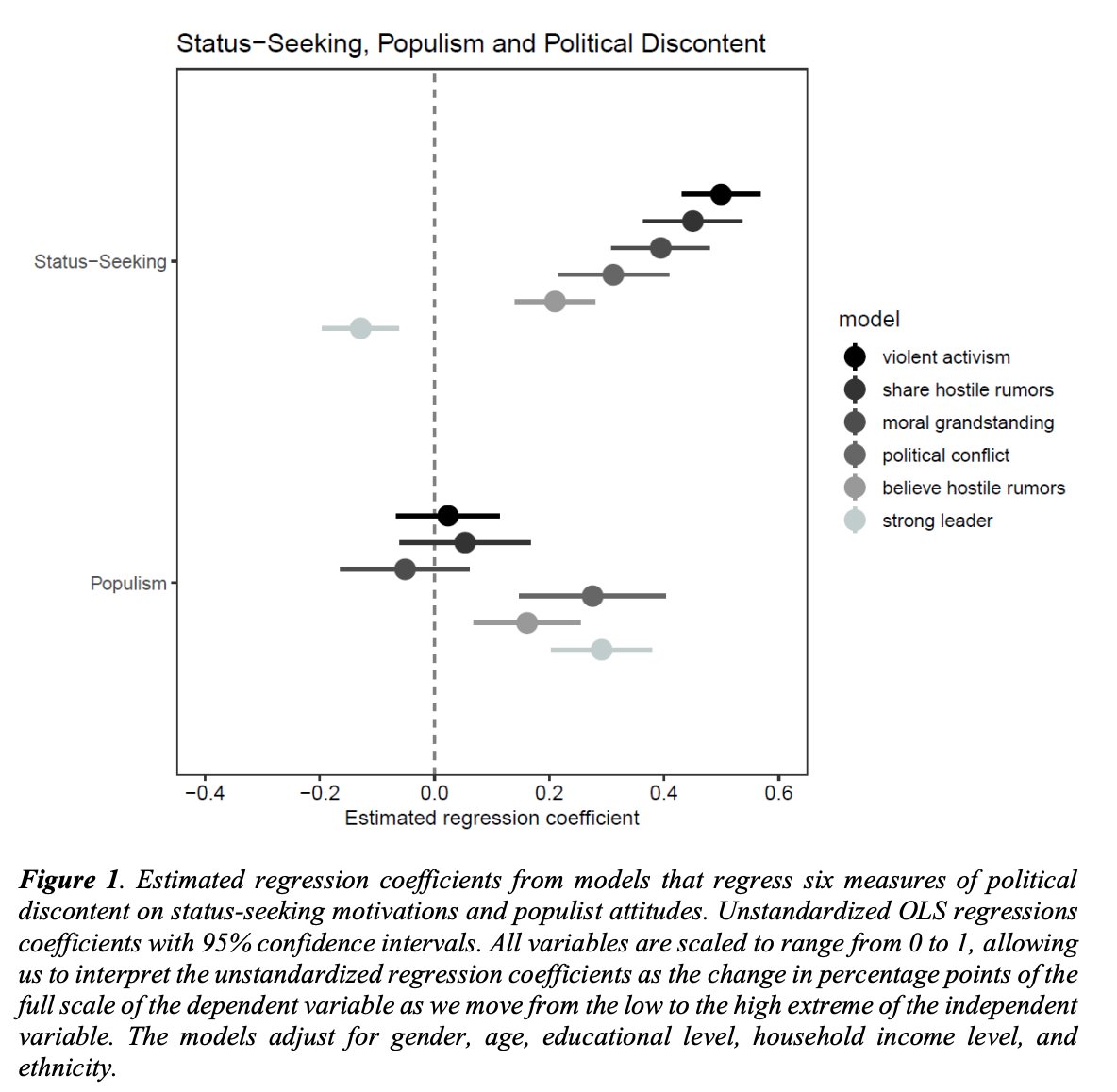
To solve problems, the 1st step is problem-identification. This applies to SoMe too.
Don't rely on your intuitions. Don't even assume Facebook knows its impact. We need real research.
Here is a 🧵 on that. The problem is different from what many - even FB - thinks. (1/14)
Don't rely on your intuitions. Don't even assume Facebook knows its impact. We need real research.
Here is a 🧵 on that. The problem is different from what many - even FB - thinks. (1/14)
Our research in @ROPHproject focuses on political hostility, i.e., the promotion of aggressive content in the context of politics. Most people find online debates more hostile than offline debates. The real question is: Why? (2/14) 

"The Facebook Files" promotes a common explanation: Nice people can easily be triggered into anger on online platforms. But can they really? No, not according to our research (cambridge.org/core/journals/…). People who are jerks online are also jerks offline. (3/14) 

Also, the sharing of misinformation is not an ignorance-based accident (cambridge.org/core/journals/…). People who share more misinfo are as reflective as others, they know more about politics and a more digitally literate. They simply hate the members of the other party more. (4/14) 

This hatred makes them share more misinfo *and* also more partisan true information. When in conflict-mode, people don't evaluate info as true vs. false but as useful vs. not useful for derogation. The real problem is not fake news sharing but *biased* news sharing. (5/14)
The people who are hostile online are people predisposed for hostility. The biggest predictor of hostility in our research - online & offline - is status-seeking. Some people crave status & seek to intimidate others into recognizing them (psyarxiv.com/puqzs). (6/14) 

Aggressive status-seeking is rooted in offline frustrations (psyarxiv.com/6m4ts/). These frustrations have been increasing since the 80s (noemamag.com/welcome-to-the…). They have been exacerbated by the financial crisis and now the pandemic (journals.sagepub.com/doi/full/10.11…). (7/14)
Frustrated people are hostile in offline discussions too. But such discussions occur in private. Online all of us can witness the behavior of these individuals & how they aggress against strangers (cambridge.org/core/journals/…). *That* is why online debates feel more hostile. (8/14) 

Online platforms do not create hostility. For those already disposed, it offers what we call "connectivity" (cambridge.org/core/journals/…): A useful tool for reaching victims & establishing collectives. Before the Internet, mobilization & coordination was difficult. No longer. (9/14)
This diagnose has important implications for solutions. First, small online nudges will not solve the problem of hostility. Nudges work when people are disposed to behave well but forget to. That is not the major problem here. Hostile people know what they are doing. (10/14)
Rather than nudges, SoMe platforms should invest in targeted interventions against the connectivity of collectives that operate in anti-democratic ways. This opens for tough discussions re: freedom of speech and there are no easy answers. (11/14)
To work out the answers, debate on SoMe needs to be de-escalated. Moderation is key - especially, by those who own a given page (e.g., media or politicians). Platforms need to make easy reporting systems. Owners need to set up clear rules for their page & police them. (12/14)
But any long-term solution will require politicians to heavily invest in policies that address real-world frustrations. Exclusive focus on SoMe is convenient because it distracts from political responsibility. But without real reform of societies, nothing will be solved. (13/14)
Most importantly, platforms need to radically share data with independent researchers. The 1st step in any solution is problem-identification. Any actor that hinders public problem-identification is a part of the problem, not the solution. That applies to Facebook too. (14/14)
• • •
Missing some Tweet in this thread? You can try to
force a refresh















